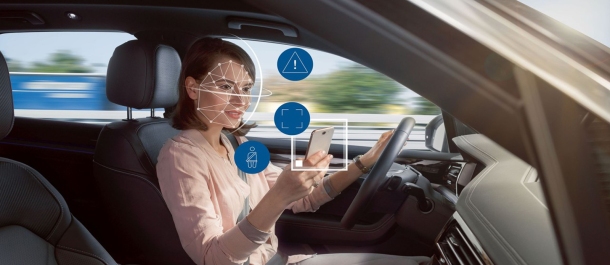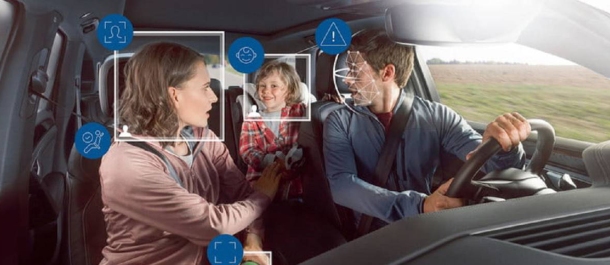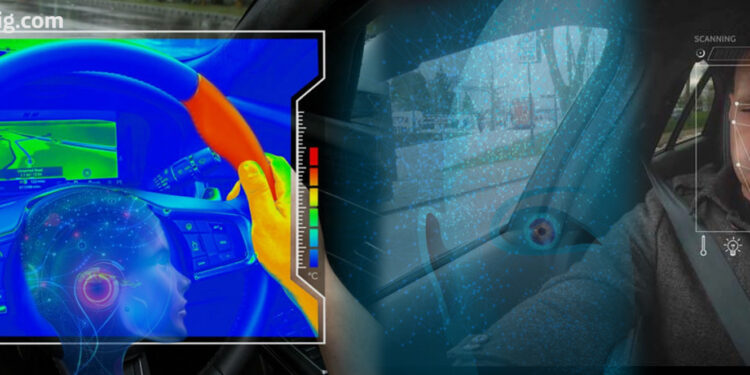The German multinational Bosch presents a new technology for cars capable of recognizing the drowsiness of the driver through the frequency of their flashes. He has already named it the “life-saving chamber”.
Stand for a moment and count for three seconds. They pass fast, don’t they? Well, in this short interval of time, a car driving at 100 kilometers per hour travels up to 90 meters, a distance enough to suffer a fatal accident if the driver gets a little distracted.
You’re not reading a traffic ad, even though it may look like it. However, this situation is real and, in fact, it happens quite a lot. One in four traffic accidents in Spain have this cause. The percentages may vary by year and place, but what does not change is that they remain, in 2020, a source of preventable damage.
Given this circumstance, the German multinational Bosch, supplier of accessories for cars, has taken the initiative to solve this problem. His proposal is as innovative as it is surprising: an AI on the steering wheel capable of detecting fatigue and distractions.

Through some algorithm, AI learns to recognize the position of the eyelids of the person in front of it, as well as the frequency of their blinking. When both vary greatly, the system warn: it is likely that something anomalous is happening. In case the driver falls asleep and his eyes remain closed for a long time sounds a alarm to wake him up. It reminds him that he needs to rest, but not while he’s on the move.
In addition, depending on the preferences of the manufacturer and the regulation of each country, you can reach reduce vehicle speed and even take control of driving.
Protection for all
Bosch loosely calls it “the life-saving camera”, because this is its function: to protect passengers. Isn’t that something you’ve been chasing for a long time? However, his proposal not only focuses on driving AI for the pilot, but also takes into account the other occupants. Protects them with a second camera, this time located above or below the rearview mirror. It warns if one of them leans too much towards the driver’s seat or if he puts his feet in the seat next to him, since it understands that these positions pose a risk to his safety in the event of an accident: the airbags and the belts could not perform their task correctly.

Privacy: an important issue
Are you concerned about data privacy? What will the system do with facial recognition and all this data? Bosch, aware of the concern it may raise, anticipates the clarification: “The information only evaluates the vehicle software, is not saved or transmitted to third parties.”
When will it be?
The announced date is 2022 and it is not a random date. Starting this year, the European Union will require all new vehicles to have tools to warn of distractions behind the wheel. According to their estimates, this measure will save some 25,000 lives and prevent 140,000 serious injuries in 15 years.
“If the car knows what its driver and occupants are doing, driving will be safer,” says Harald Kroeger, member of the Board of Directors of Robert Bosch GmbH.
A precedent that sets the future
Moreover, in this same statement they express that, in addition to safe, the driving of the future will be more autonomous: vehicles will circulate “by themselves” on the roads. But this implies that cars must be prepared to return control to people whenever they want. Especially on difficult sections, such as accident areas or the motorway exit.
In this sense, the steering wheel AI is quite customizable. Not only does it” recognize ” the pilot, but it will allow you to adjust other options, such as height, rear-view mirrors, seat position and infotainment systems according to personal preferences. The future also involves adapting to each case.
Another example of this is the connectivity technology offered by Movistar Car, which allows the connected car to be safer and smarter.
Cars that talk, that brake on their own before crashing, connected … And soon they will also warn us when we fall asleep. What’s next?
—
Header illustration: Gonzalo Chavarri. Images: Bosch.









